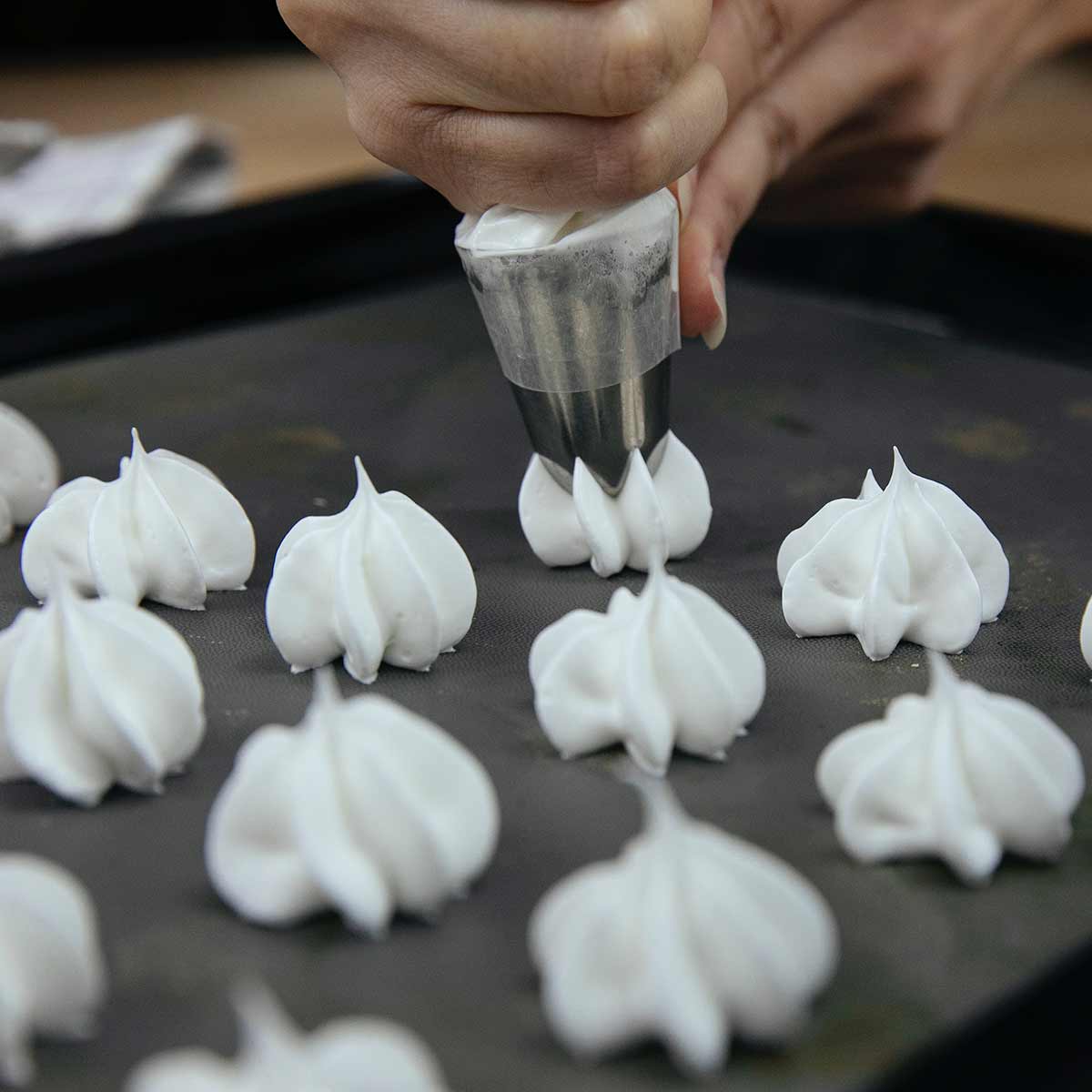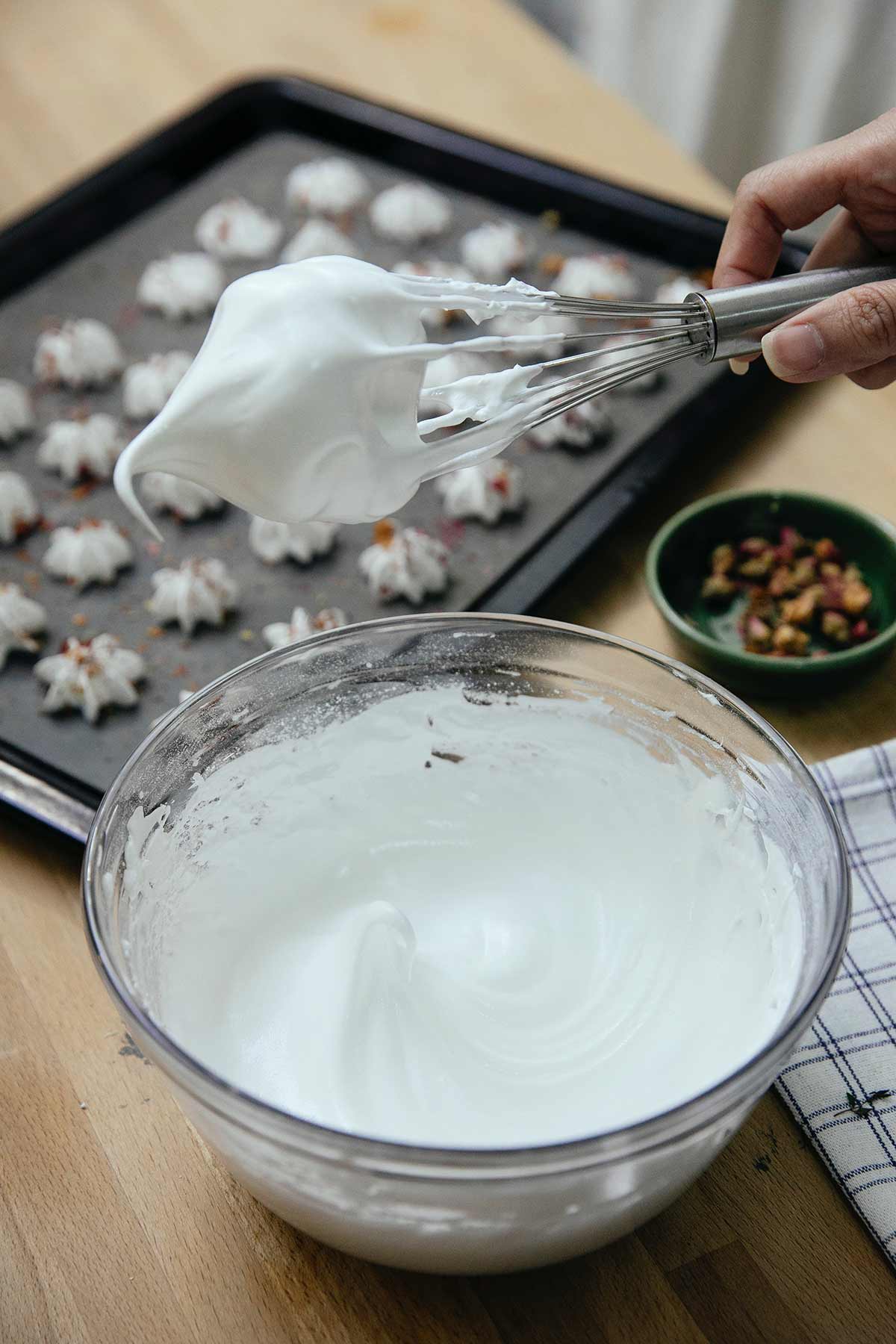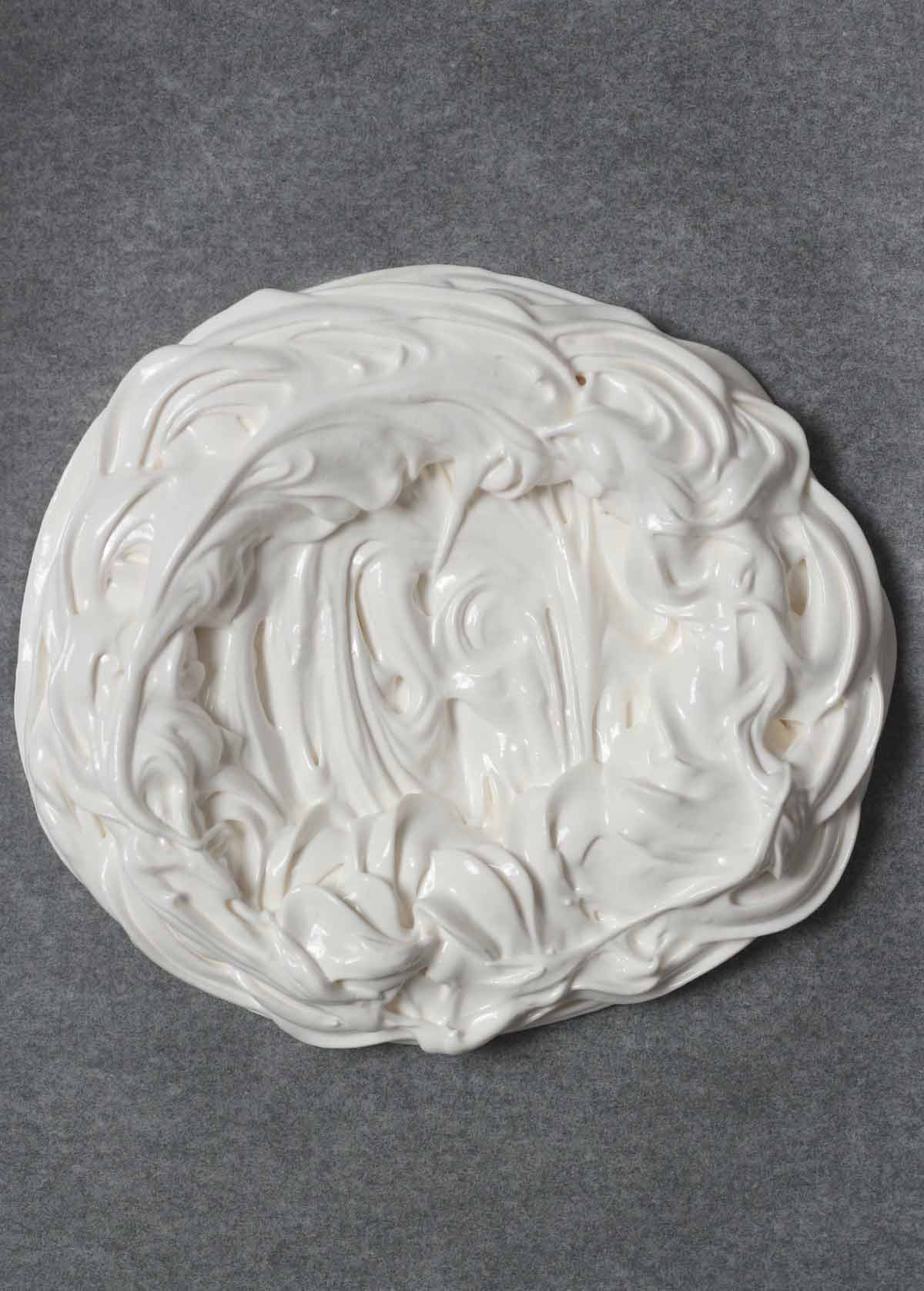Why Did My Vegan Meringues Collapse?
Wondering what’s causing your vegan meringues to collapse? This post will explain the most common reasons this happens and what you can do to prevent it.
Vegan meringues are no easy feat and they are definitely not for the faint of heart! Obviously there are no eggs in the recipe which makes things a lot tricker. But rest assured, it is possible to make vegan meringues that DON’T collapse and taste just as good as the traditional kind.
When I made my vegan pavlova a few years ago, it took me SO many tries to get it right. I burnt it, I underbaked it, it wept, collapsed, and on some of the tries I couldn’t even get the mixture to whip into stiff peaks! I learned a lot through the process though and thought it might be handy to write up my top tips for anyone who may be struggling with collapsing meringues.
Why do vegan meringues collapse?
Let’s take a look at some of the most common reasons why your vegan meringues may be collapsing. Hint: it’s not just the lack of eggs!
1. You didn’t use a stabilising ingredient
This is one of the most important steps to getting a sturdy meringue. Even though you’re using aquafaba instead of eggs, adding an acidic ingredient like cream of tartar, vinegar or lemon juice will help to stabilise your meringue. This will make it less prone to weeping and collapsing.
2. You added the sugar all at once
You’ll find that most meringue recipes, vegan or not, tell you to add sugar in gradually. There is a reason for this! If you add all of the sugar at once, it’ll knock the air out of your mixture and cause deflating. To prevent this, add your sugar in around 1-2 tablespoons at a time, mixing as you go.
3. You didn’t whisk the mixture for long enough
If your mixture isn’t stiff enough when you put it into the oven, it’s likely to weep and collapse while baking. Just like making meringues with eggs, you want to whisk your vegan meringue mixture until it’s stiff enough to tip the bowl upside down without it moving.
Be careful though because you can also overmix meringue! This can lead to a grainy mixture and cause your meringue to deflate. As soon as it reaches stiff peaks, stop whisking.
4. Your oven is too cold (or too hot)
If your oven is not warm enough when you put the meringue in, it is likely to retain too much moisture and collapse. The same goes for not baking it long enough.
If your oven is too hot, it can cause excessive cracking and the meringues may collapse when you try to handle them.
5. You opened the oven door too quickly
Opening the oven during baking is a sure way to get collapsed vegan meringues. The sudden change in temperature can cause excessive cracking which can cause your meringues to collapse.
Try to avoid opening the oven door at all but if you must, wait until the full baking time has almost been reached. Once the meringues are done baking, I recommend turning the oven off and leaving the meringues in there without opening the door for at least a few hours. I find this is the best way to prevent cracks.
Tips to prevent vegan meringues from collapsing
Now that we know the things that may cause vegan meringues to collapse, let’s take a look at some of the things you can do to prevent it from happening.
1. Reduce your aquafaba
This is my top tip for sturdy vegan meringues! To reduce your aquafaba means to boil it down, making it more concentrated. This will also help it to whip up quicker.
To reduce your aquafaba, weigh it in a bowl then boil it down until the weight reduces by half. For example, if you start with 160g of aquafaba, boil it over medium-high heat until it reaches 80g. You can pour the aquafaba between the bowl and the saucepan every so often to weigh it.
2. Add xanthan gum
This is not an essential but I find xanthan gum really helps vegan meringues to hold shape. You’ll only need a very small amount, probably 1/8 teaspoon to 1/4 teaspoon. I recommend gently folding it in after you’ve reached the stiff peaks stage. You can find xanthan gum in the baking aisle or gluten-free section of supermarkets.
3. Use an oven thermometer
You may think your oven is accurate but you’d be surprised at how often it runs too hot or too cold. I recommend using an oven thermometer to ensure accuracy. I use this one by Salter.
I hope you enjoyed this post! If you found it useful, please share it with a friend using the share buttons on this page. Happy baking! xo







Ticky
Saturday 30th of March 2024
This makes a tiny pavlova! Definitely not a serving for six, more like 2-3. Which is irksome especially considering the amount of effort required to make it. I will be to doubling the recipe next time.